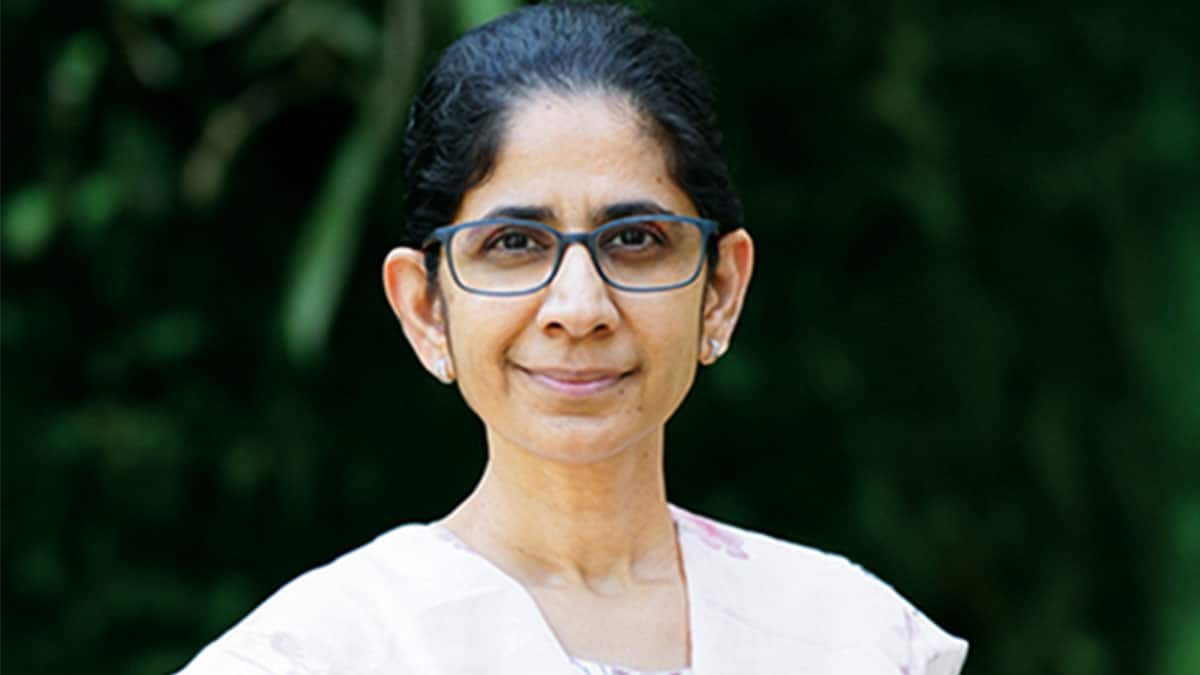‘We are reimagining MBA education’: IIM Bangalore dean
Team Careers360 | September 9, 2025 | 09:43 AM IST | 3 mins read
Aspirants should expect sharper MBA courses mixing global and local content, diverse classes and deeper partnerships with industry and civil society, writes IIMB dean

By Mukta Kulkarni
If you thought management education was just about case studies and classroom debates, think again. The traditional model is undergoing a fundamental transformation — from how it’s delivered, to who it serves, and what it prepares learners for. At Indian Institute of Management (IIM) Bangalore, we are at the forefront of this change, responding to emerging trends and anticipating future needs.
Let me walk you through how we’re reimagining management education.
IIMB is digital-friendly, but not digital-only
Online learning is now mainstream, but what matters is how we use it to create meaningful, flexible, and engaging experiences. At IIMB, our digital initiatives are designed not just for reach, but for impact.
Our offerings — from MOOCs on edX and SWAYAM to our on-campus digital learning initiatives — serve learners around the world. Courses like Artificial Intelligence for Managers have drawn professionals from across industries and borders. A standout initiative is our Bachelor of Business Administration in Digital Business and Entrepreneurship. This first-of-its-kind online undergraduate degree integrates digital strategy, business management, and entrepreneurship. Open to learners across regions and backgrounds, the degree enables students to access high-quality education without the need to relocate or disrupt their lives.
The programme blends live sessions, mentorship, hands-on projects, and strong peer learning. We don’t just teach digital business — we help students live it. Networking and collaboration are central to this community-driven experience.
Expanding the undergraduate horizon
We’re also expanding our undergraduate offerings through two full-time, residential honors programmes: the BSc (Hons) in Economics and the BSc (Hons) in data sciences. Both programmes uphold IIMB’s academic rigor while embracing the cross-disciplinary demands of today’s rapidly evolving world.
The economics programme includes a minor in data sciences, and the data sciences programme includes a minor in economics — a deliberate structure that reflects how these fields increasingly overlap in business, policy, and research. These programmes represent our continued commitment to providing high-quality undergraduate education that is not only academically excellent but also highly relevant to the future of work and society.
Lifelong learning
The degree is no longer a one-time, few-year stop. Today, learning is continuous — and we’ve embraced that shift.
Many of our executive education offerings are modular, flexible, and tailored for professionals at various career stages. Whether you’re mid-career or in the C-suite, there’s space to grow.
Working toward broader impact
Management today goes beyond the conventional organisation and the boardroom. We need leaders who understand sustainability, social impact, and inclusion — and we prepare our
students accordingly.
Our Centre for Public Policy — one of India’s few such centers within a management school — bridges policy and business. From healthcare systems to urban transport, students engage in research and interventions that matter to our citizens.
Our entrepreneurship center, NSRCEL, supports a wide range of ventures — from tech-driven innovation to grassroots enterprises. Our Entrepreneurship Programmes have empowered 1000s of entrepreneurs across the country.
Cross-disciplinary is the new core
Today’s challenges don’t fit neatly into departmental boxes. That’s why our programmes encourage systems thinking and collaboration across fields.
Centers like the Mizuho India Japan Study Centre and the Centre for Teaching and Learning enable students and faculty to explore intersections—between finance and sustainability, marketing and AI, or strategy and ethics. Whether through workshops, conclaves, conferences, electives, research projects, or live cases, we foster multidimensional thinking for a multidimensional world.
Where’s management education headed?
Expect shorter, sharper courses. Expect the global and the hyperlocal in course content. Expect learners from diverse walks of life — engineers, yes, but also artists, doctors, lawyers, activists, and entrepreneurs. Expect deeper partnerships between academia, industry, and civil society.
More importantly, expect management education to move beyond job readiness—to purpose, innovation, and resilience.
At IIM Bangalore, we are committed to shaping individuals who can navigate complexity with clarity and character. Whether online or in-person, through undergraduate, graduate, or executive programmes, we aim to nurture talent that can build not just businesses, but a better world.
Overall, the future of education is evolving — and we’re proud to be helping define what it looks like.
Mukta Kulkarni is a professor and dean, programmes chairperson of international affairs, IIM Bangalore. This piece first appeared in the 200th issue of the Careers360 magazine, published in August, 2025.
Follow us for the latest education news on colleges and universities, admission, courses, exams, research, education policies, study abroad and more..
To get in touch, write to us at news@careers360.com.
Next Story
]NAAC grades to be replaced by binary system, One Nation One Data to end multiple agency submissions: Chairman
NAAC executive committee and NETF chief Anil Sahasrabudhe talks about the hub-and-spoke research model, NIRF rankings, low participation in accreditation, KLEF row, penalties for false data, and more
Aeshwarya Tiwari